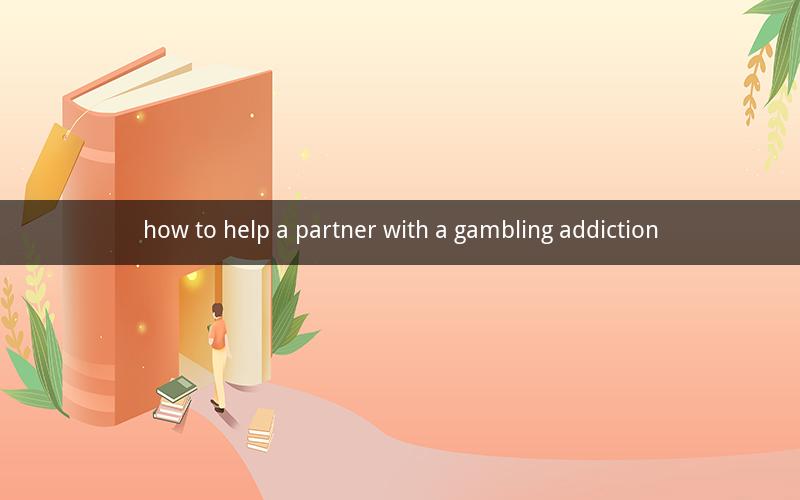
How to Help a Partner with a Gambling Addiction
Table of Contents
1. Understanding the Problem
2. Communication and Support
3. Encouraging Professional Help
4. Setting Boundaries
5. Financial Management
6. Supporting Their Recovery Process
7. Taking Care of Yourself
8. The Importance of Education
9. Community and Support Groups
10. Long-Term Strategies
1. Understanding the Problem
Recognizing the signs of a gambling addiction is the first step in helping your partner. Look out for behaviors such as secretive actions, financial strain, neglect of responsibilities, and an increasing amount of time spent gambling. Understanding that addiction is a disease and not a moral failing is crucial in providing the necessary support.
2. Communication and Support
Open, honest, and empathetic communication is key. Encourage your partner to talk about their feelings and experiences without judgment. Be a supportive listener, offering words of encouragement and understanding. Avoid confrontational language, as it may push your partner further away.
3. Encouraging Professional Help
Gambling addiction is a serious condition that often requires professional intervention. Suggest that your partner seek help from a therapist or counselor specializing in addiction. This can provide them with the tools and strategies needed to overcome their addiction.
4. Setting Boundaries
Establish clear boundaries to protect yourself and your partner. This may include setting limits on finances, access to gambling activities, and social interactions. It's important to communicate these boundaries clearly and consistently.
5. Financial Management
Help your partner manage their finances by taking control of household finances, if necessary. This can prevent further financial strain and ensure that essential expenses are covered. Consider seeking the help of a financial advisor to develop a plan for recovery.
6. Supporting Their Recovery Process
Encourage your partner to participate in self-help groups such as Gamblers Anonymous. These groups can provide additional support and resources for those struggling with gambling addiction. Attend meetings with your partner, if they feel comfortable, to show your support.
7. Taking Care of Yourself
It's crucial to take care of your own mental and emotional well-being while supporting your partner. Seek support from friends, family, or support groups for individuals with loved ones struggling with addiction. Engage in activities that promote your health and well-being, such as exercise, meditation, or hobbies.
8. The Importance of Education
Educate yourself about gambling addiction to better understand the challenges your partner faces. Learn about the different types of treatment and recovery strategies available. Knowledge can empower you to provide the most effective support.
9. Community and Support Groups
Joining a support group for individuals with loved ones struggling with gambling addiction can provide you with valuable resources and emotional support. These groups can help you navigate the complexities of addiction and recovery.
10. Long-Term Strategies
Long-term recovery from gambling addiction requires ongoing commitment. Encourage your partner to continue attending therapy sessions, support groups, and self-help meetings. Celebrate small victories and milestones along the way, and be prepared to offer continued support as needed.
---
Frequently Asked Questions
1. What if my partner refuses to seek help?
Encourage them to consider the consequences of their addiction and the benefits of seeking professional help. Offer to accompany them to appointments or support groups.
2. How can I help my partner manage their finances if they're secretive?
Communicate your concerns openly and offer to help. If necessary, seek legal advice on how to manage shared finances without causing further strain.
3. What if I feel overwhelmed by the situation?
Seek support from friends, family, or support groups. Remember that it's important to take care of yourself to be able to support your partner effectively.
4. How can I encourage my partner to participate in self-help groups?
Share your own experiences with support groups and the positive impact they had on you. Offer to attend meetings with them to show your support.
5. What if my partner's addiction affects our children?
Seek professional help to address the emotional and psychological impact on your children. Provide them with a safe and stable environment, and consider involving them in therapy if necessary.
6. How can I help my partner develop healthy coping mechanisms?
Encourage them to try new activities and hobbies that can distract them from gambling. Suggest exercise, meditation, or other stress-relieving techniques.
7. What if my partner's addiction leads to legal issues?
Offer to help them understand the legal implications of their actions and seek legal advice. Support them in resolving any legal issues that arise.
8. How can I help my partner maintain long-term recovery?
Continue to offer support and encouragement. Celebrate milestones and remind them of the progress they have made.
9. What if my partner's addiction affects our relationship?
Work on rebuilding trust and communication. Consider couple's counseling to address any relationship issues that have arisen due to the addiction.
10. How can I stay motivated to support my partner through recovery?
Remember the positive impact you're having on their life. Seek support from others who have experienced similar situations and focus on the progress you've made together.